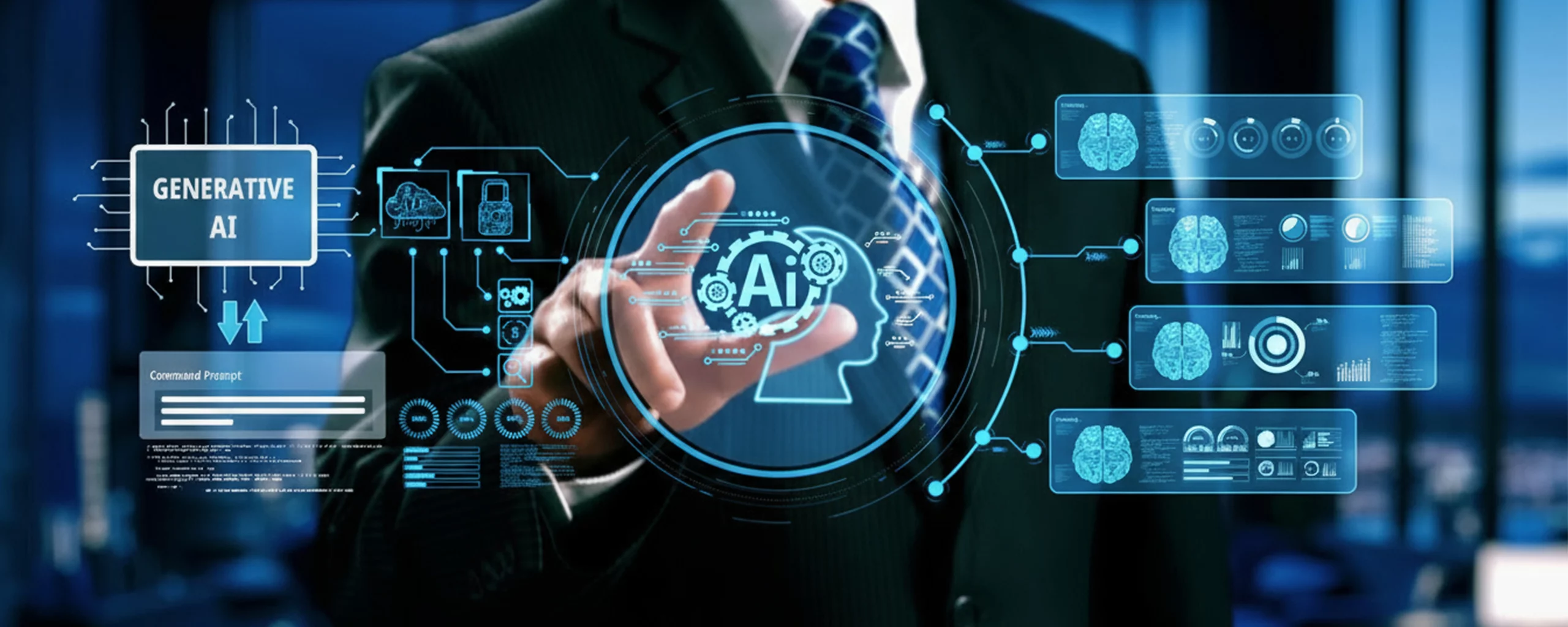AI Business Intelligence: Transforming How Enterprises Use Data

AI business intelligence is changing how businesses understand and act on their data. Instead of relying on static dashboards and periodic reports, companies can now use machine learning and predictive analytics to make real-time, automated decisions.
According to Gartner’s 2025 report, 75% of IT work will be done by humans augmented with AI. These numbers show why AI BI is quickly becoming the foundation for modern enterprise strategy.
What is AI Business Intelligence?
AI business intelligence combines artificial intelligence, analytics, and automation to help organizations process large datasets, identify patterns, and predict outcomes. Unlike traditional BI, which looks backward, AI BI looks ahead. It continuously learns from new data and delivers recommendations without manual effort.
For example, a retail company using AI BI can forecast product demand weeks in advance, automatically adjusting inventory and pricing. The result is higher sales, less waste, and better customer satisfaction.
Why AI Business Intelligence Beats Traditional BI
- Real-Time Insights: Traditional BI tells you what happened. AI BI predicts what will happen next and why.
- Conversational Access: Teams can ask questions in plain English and get instant visual answers.
- Self-Learning Models: AI BI platforms improve accuracy as they process more data.
- Early Risk Detection: The system flags anomalies before they turn into larger business problems.
McKinsey estimates that companies using AI BI tools gain a 20%–30% boost in productivity because employees spend less time analyzing and more time executing.
Core Benefits of AI Business Intelligence
- Predictive Analytics: Forecast trends in sales, customer behavior, and revenue.
- Operational Efficiency: Automate data gathering and analysis, saving hours of manual effort.
- Faster Forecasting: Process millions of records in seconds for accurate projections.
- Smarter Decision-Making: Empower leaders with live metrics instead of outdated reports.
- Cost Reduction: Reduce waste and improve resource allocation using data-backed decisions.
Enterprise Applications of AI Business Intelligence
AI business intelligence is transforming operations in almost every major industry.
Manufacturing
- Predictive maintenance helps avoid unexpected downtime.
- AI vision systems identify product defects faster than human inspectors.
Logistics
- Smart routing and real-time traffic analysis cut fuel costs and delivery times.
- AI BI forecasts supply chain delays and recommends alternate routes automatically.
Finance
- Real-time fraud detection protects transactions at scale.
- Predictive risk analysis helps with investment and credit decisions.
Healthcare
- AI BI assists in diagnosing diseases and predicting patient outcomes.
- Hospitals use predictive analytics for staff planning and equipment allocation.
Retail
- Dynamic pricing algorithms optimize margins based on demand and competition.
- AI BI tracks consumer sentiment to personalize marketing and improve retention.
Each example proves how AI business intelligence drives measurable ROI by making enterprise decisions faster, data-backed, and smarter.
Real-World Examples
- Amazon uses AI BI for real-time inventory optimization and personalized shopping recommendations.
- JPMorgan Chase relies on AI BI for fraud detection, compliance monitoring, and customer analytics.
- Pfizer uses AI BI to speed up clinical trials and improve drug research.
These companies show how AI BI helps large organizations act on insights immediately, not days or weeks later.
Implementation Challenges
Even though AI BI brings clear benefits, it’s not plug-and-play for every company.
- Data Quality: AI BI models depend on clean, accurate data.
- Integration Barriers: Older systems might need upgrades to connect with AI platforms.
- Talent Gap: Teams must learn to interpret predictive insights confidently.
That’s where Isometrik AI can help. Its no-code AI platform makes deploying AI BI seamless, even for teams without deep technical expertise. Enterprises can build AI workflows, automate reporting, and generate real-time forecasts with minimal effort.
The Future of AI Business Intelligence
AI BI is evolving from a support tool to a business co-pilot. Future systems will go beyond suggesting actions—they’ll execute them autonomously based on predefined logic.
IDC predicts that by 2027, more than 80% of BI systems will include AI-powered automation that acts in real-time. This means companies won’t just analyze data—they’ll continuously adapt their operations as data changes.
Conclusion
AI business intelligence is no longer optional for enterprises aiming to stay ahead. It helps leaders make faster, smarter, and more confident decisions by turning raw data into actionable insights. As predictive analytics and automation become standard, businesses that adopt AI BI today will define the competitive edge of tomorrow.
Ready to bring AI business intelligence to your organization? Learn how Isometrik’s no-code AI platform can integrate AI-driven analytics into your workflows effortlessly.